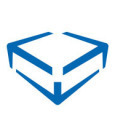Computer shows up in wrong Organization
Our K1000 is divided into two Organizations, I have one computer that will not provision into the correct org. It was originally provisioned in the “wrong†org before we split the Kbox into the two organizations.
I removed the agent and deleted the asset from the “wrong†org and then reinstalled the agent from the correct org but the computer still shows up in the wrong org.
Any help would be appreciated,
- Hamilton
I removed the agent and deleted the asset from the “wrong†org and then reinstalled the agent from the correct org but the computer still shows up in the wrong org.
Any help would be appreciated,
- Hamilton
0 Comments
[ + ] Show comments
Answers (13)
Answer Summary:
You can redirect a computer to a different organization. For example, a computer checks into organization A. You can redirect that computer to organization B. The next time the computer checks in, it will check into organization B. To redirect computers 1. In the Organization menu, click System. 2. Click Organizations > Computers. The K1000 Computers page appears. 3. Click the check boxes for the computers that you want to redirect. 4. Select the appropriate organization name under Change Sync to Organization, from the Choose Action menu, to redirect the computers to the appropriate organization.
You can redirect a computer to a different organization. For example, a computer checks into organization A. You can redirect that computer to organization B. The next time the computer checks in, it will check into organization B. To redirect computers 1. In the Organization menu, click System. 2. Click Organizations > Computers. The K1000 Computers page appears. 3. Click the check boxes for the computers that you want to redirect. 4. Select the appropriate organization name under Change Sync to Organization, from the Choose Action menu, to redirect the computers to the appropriate organization.
Please log in to answer
Posted by:
warmep
13 years ago
Redirecting Computers
You can redirect a computer to a different organization. For example, a computer checks into organization A. You can redirect that computer to organization B. The next time the computer checks in, it will check into organization B.
To redirect computers
1. In the Organization menu, click System.
2. Click Organizations > Computers.
The K1000 Computers page appears.
3. Click the check boxes for the computers that you want to redirect.
4. Select the appropriate organization name under Change Sync to Organization, from the Choose Action menu, to redirect the computers to the appropriate organization.
You can redirect a computer to a different organization. For example, a computer checks into organization A. You can redirect that computer to organization B. The next time the computer checks in, it will check into organization B.
To redirect computers
1. In the Organization menu, click System.
2. Click Organizations > Computers.
The K1000 Computers page appears.
3. Click the check boxes for the computers that you want to redirect.
4. Select the appropriate organization name under Change Sync to Organization, from the Choose Action menu, to redirect the computers to the appropriate organization.
Comments:
-
This worked for my computers. Thank you. Can you help me define a filter for my users? It's not intuitive to me how to do it and I haven't found the answer here yet.
I did find something in the Admin manual about changing the Organization for each user but one field that is required idfor me to use the password that they use to log on to confirm the change. I don't have that information. - AndrewQ 11 years ago
Posted by:
airwolf
13 years ago
I haven't used a multi-organization box, but I'd try clearing the HKLM\Software\KACE key in the registry. Also delete the C:\Program Files\KACE directory. The old organization is probably in a config file or registry key somewhere. I'd also delete any old records of that machine from KBOX inventory before installing the agent in the new organization.
Posted by:
dchristian
13 years ago
Posted by:
HMcWhorter
13 years ago
Hey guys, thanks for the quick replies.
David,
I do have org filters setup but they don't seem to do anything. (I am filtering on IP Address (org1: 10.18, & org2 10.19) since the two companies are on those address ranges.) I had it set to 10.18.100 prior to today and there were servers showing up with IP Address 10.18.129.xxx. So if the filter was working, I wouldn't expect to see them.
I'll give Andy's suggestion a try and report back...
David,
I do have org filters setup but they don't seem to do anything. (I am filtering on IP Address (org1: 10.18, & org2 10.19) since the two companies are on those address ranges.) I had it set to 10.18.100 prior to today and there were servers showing up with IP Address 10.18.129.xxx. So if the filter was working, I wouldn't expect to see them.
I'll give Andy's suggestion a try and report back...
Posted by:
dchristian
13 years ago
Posted by:
HMcWhorter
13 years ago
OK, well that's pretty weird, the total number of computers is 117.
When I test the filter "IP Address Contains 10.18 it shows 112 computers it should be 73.
When I test the filter "IP Address Contains 10.19 it shows 2 computers it should be 44.
Edit: Just to be clear, when I test the filter "IP Address contains 10.18" it shows computers with the address range of 10.19.xxx.xxx
When I test the filter "IP Address Contains 10.18 it shows 112 computers it should be 73.
When I test the filter "IP Address Contains 10.19 it shows 2 computers it should be 44.
Edit: Just to be clear, when I test the filter "IP Address contains 10.18" it shows computers with the address range of 10.19.xxx.xxx
Posted by:
GillySpy
13 years ago
Once a computer is in the wrong ORG you have to either delete it or move it manually. It will not obey the filter after it is assigned to an ORG.
As for the filter showing odd results. When you say "contains" you are doing two things:
1) The string is interpreted as %10.18% (where % is a SQL wildcard). So that mean 10.19.110.18 would match. Perhaps you want to use "begins with 10.18."
2) It may be searching all NICs on that machine and not just the current IP
Lastly, if I recall correctly there is a bug with filters that was corrected in 5.3. I don't have that information handy at the moment
As for the filter showing odd results. When you say "contains" you are doing two things:
1) The string is interpreted as %10.18% (where % is a SQL wildcard). So that mean 10.19.110.18 would match. Perhaps you want to use "begins with 10.18."
2) It may be searching all NICs on that machine and not just the current IP
Lastly, if I recall correctly there is a bug with filters that was corrected in 5.3. I don't have that information handy at the moment
Posted by:
HMcWhorter
13 years ago
Thanks Gerald,
I tried deleting it but when I reinstalled the agent it went back to the wrong org...
You mentioned I could "move it manually" can you explain in how?
I tried deleting it but when I reinstalled the agent it went back to the wrong org...
You mentioned I could "move it manually" can you explain in how?
Comments:
-
From what I remember it had to be changed to the other org manually. I have had to do this on occasions. - paisleyaj 8 years ago
Posted by:
HMcWhorter
13 years ago
Posted by:
warmep
13 years ago
Moving the computer to a different org wouldn't create a duplicate entry.
The problem typically comes on machines that have more than one network interface and switch frequently and quickly. For example, a user pulls his laptop out of a docking station effectively switching from the ethernet adapter to the wireless adapter (new MAC and new IP). If the AMP connection on the ethernet connection does not terminate quickly enough then the connection over wireless will look like a concurrent connection by the same KUID. The K1000 will disallow this concurrency and ask the agent to go and get a new KUID.
http://www.kace.com/support/kb/index.php?action=artikel&cat=3&id=673&artlang=en
The problem typically comes on machines that have more than one network interface and switch frequently and quickly. For example, a user pulls his laptop out of a docking station effectively switching from the ethernet adapter to the wireless adapter (new MAC and new IP). If the AMP connection on the ethernet connection does not terminate quickly enough then the connection over wireless will look like a concurrent connection by the same KUID. The K1000 will disallow this concurrency and ask the agent to go and get a new KUID.
http://www.kace.com/support/kb/index.php?action=artikel&cat=3&id=673&artlang=en
Posted by:
HMcWhorter
13 years ago
Posted by:
GillySpy
13 years ago
Posted by:
HMcWhorter
13 years ago
 Rating comments in this legacy AppDeploy message board thread won't reorder them,
Rating comments in this legacy AppDeploy message board thread won't reorder them,so that the conversation will remain readable.






